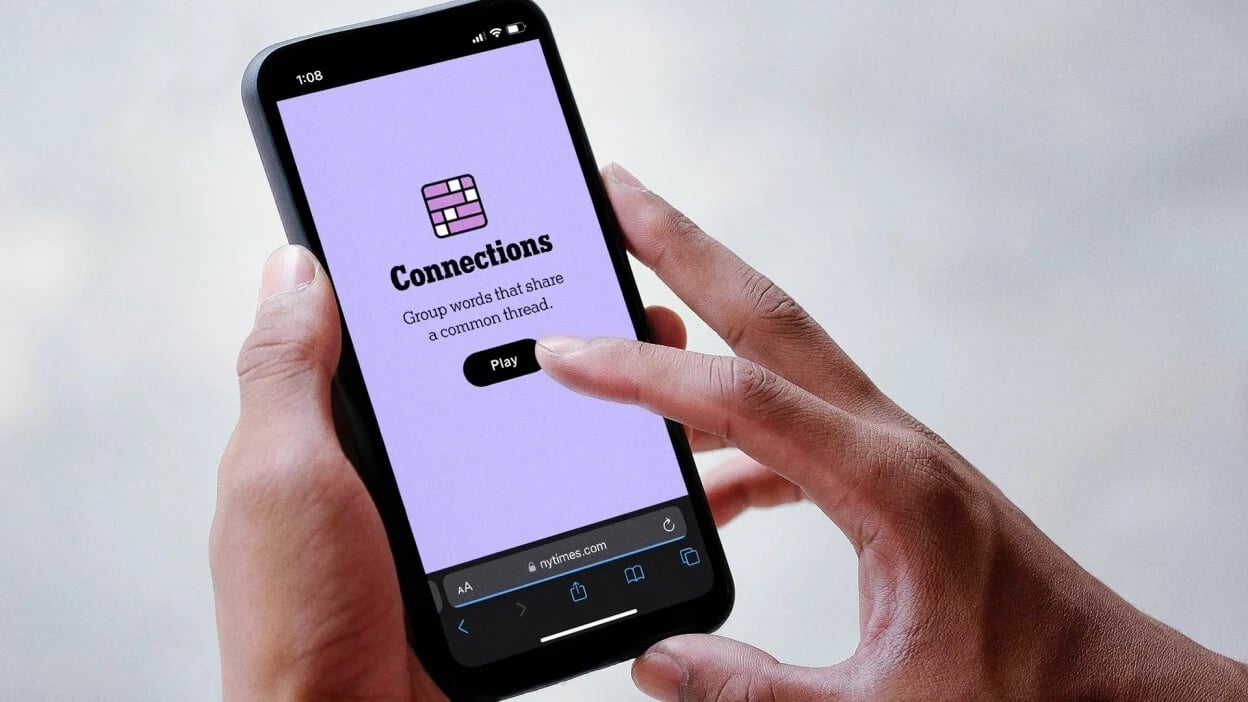connections hint: A Comprehensive Guide to Understanding and Enhancing Your Relationships
connections hint Have you ever paused to think about the connections in your life? Whether it’s friendships, family ties, or professional relationships, our connections shape who we are and how we navigate the world. In this guide, we’ll explore various facets of connections, their significance, and practical strategies to enhance them. Get ready to dive deep into the art and science of building meaningful relationships!
Understanding the Nature of Connections
The Definition of Connections
Connections, at their core, are connections hint the relationships we form with others. These can range from superficial acquaintances to deep, meaningful bonds. While some connections may be fleeting, others can last a lifetime, impacting our emotional well-being and overall happiness. Understanding the different types of connections is essential in recognizing how they affect our lives.
Connections can be categorized into several types:
- Personal Connections: These are relationships we share with family and friends. They often provide emotional support and companionship, contributing significantly to our happiness and sense of belonging.
- Professional Connections: These connections hint include colleagues, mentors, and industry contacts. They are crucial for career development and can open doors to new opportunities.
- Community Connections: Involvement in community groups, clubs, or volunteer organizations can enhance your sense of belonging and purpose.
- Online Connections: With the rise of social media, many people form connections online. These can be both positive and negative, influencing our self-esteem and social skills.
The Importance of Connections
Connections play a vital role in our mental and emotional health. Numerous studies have shown that individuals with strong social ties are connections hint generally happier and less stressed. Here are some reasons why connections are essential:
- Support System: Friends and family provide emotional support during challenging times. Having someone to talk to can significantly reduce stress and anxiety.
- Sense of Belonging: Being connected to others fosters a sense of belonging. This feeling can improve your self-esteem and connections hint encourage personal growth.
- Opportunities for Growth: Connections often lead to new experiences and opportunities, whether through job referrals or new hobbies introduced by friends.
- Enhanced Communication Skills: Building and maintaining connections requires communication. This process helps improve our interpersonal skills, making it easier to navigate various social situations.
The Science Behind Connections
Research in psychology and sociology highlights the importance of connections in our lives. For instance, studies show that individuals with strong social networks tend to live longer and healthier lives. The concept of “social capital” refers to the benefits we gain from our social networks, including emotional support, information exchange, and even job opportunities.
One fascinating study conducted by researchers at Harvard University tracked the lives of individuals over several decades, revealing that social connections hint connections are one of the most significant predictors of happiness and health. This research underscores the idea that our connections not only enrich our lives but also contribute to our longevity.
Building Strong Personal Connections
Nurturing Friendships
Friendships are an essential aspect of connections hint our lives. They provide companionship and joy but also require effort and attention to thrive. Here are some strategies to nurture your friendships:
- Stay in Touch: Regular communication is key to maintaining friendships. Whether it’s through text messages, phone calls, or social media, make an effort to reach out and check-in.
- Plan Regular Get-Togethers: Make it a habit to schedule regular hangouts, whether it’s a coffee date or a weekend outing. Spending time together strengthens bonds and creates lasting memories.
- Be There for Each Other: Support connections hint your friends during difficult times. Show empathy and understanding, and offer your help when they need it. Being reliable fosters trust and strengthens connections.
Strengthening Family Bonds
Family connections can be both rewarding and challenging. To strengthen these ties, consider the following:
- Family Traditions: Establishing family traditions can create a sense of belonging and connection. Whether it’s weekly dinners, holiday connections hint rituals, or annual vacations, traditions provide opportunities for bonding.
- Open Communication: Foster an environment where family members feel comfortable expressing their thoughts and feelings. Encourage open dialogue to address issues and resolve conflicts.
- Quality Time Together: Make an effort to spend quality time with your family. Engaging in activities together, such as game nights or outdoor adventures, strengthens relationships and creates cherished memories.
The Role of Emotional Intelligence
Emotional intelligence (EQ) plays a crucial role in building and maintaining personal connections. It involves the ability to recognize and connections hint manage your emotions, as well as empathize with others. Here are ways to enhance your EQ for better connections:
- Self-Awareness: Reflect on your emotions and how they affect your interactions. Understanding your feelings can help you communicate more effectively.
- Empathy: Practice putting yourself in others’ shoes. Try to understand their perspectives and feelings, which can strengthen your connections.
- Effective Communication: Use clear and respectful communication. Be mindful of your tone and body language, as they can significantly impact how your message is received.
Enhancing Professional Connections

Networking Strategies
Networking is a vital component of connections hint professional growth. Building a robust network can lead to new opportunities and collaborations. Here are some effective networking strategies:
- Attend Industry Events: Participate in conferences, workshops, and seminars related to your field. These events provide excellent opportunities to meet new people and expand your network.
- Utilize Social Media: Platforms like LinkedIn are powerful tools for networking. Create a strong profile, engage with industry-related content, and connect with professionals in your field.
- Follow Up: After meeting someone new, follow up with a personalized message. This gesture shows your interest and helps solidify the connection.
Mentorship and Its Impact
Mentorship can significantly enhance connections hint your professional journey. A mentor provides guidance, support, and valuable insights based on their experiences. Here are ways to find and cultivate mentorship connections:
- Identify Potential Mentors: Look for individuals whose careers you admire. They could be colleagues, supervisors, or industry leaders.
- Reach Out: Don’t hesitate to reach out to potential mentors. Express your admiration for their work and your desire to learn from them. Be clear about your goals and what you hope to gain from the mentorship.
- Be Open to Feedback: Embrace connections hint constructive criticism from your mentor. Use their insights to grow professionally and improve your skills.
Cultivating Team Dynamics
In a professional setting, strong team dynamics are crucial for success. Here are strategies to enhance connections within your team:
- Foster a Collaborative Environment: Encourage open communication and collaboration among team members. Create an atmosphere where everyone feels comfortable sharing their ideas and opinions.
- Celebrate Achievements: Recognize and celebrate individual and team accomplishments. Acknowledging success fosters a connections hint sense of belonging and motivates team members to perform their best.
- Engage in Team-Building Activities: Organize team-building exercises to strengthen bonds among team members. These activities promote teamwork and improve relationships, leading to a more cohesive work environment.
Exploring Community Connections
The Benefits of Community Engagement
Engaging with your community can enrich your life and enhance your connections. Here are some benefits of community involvement:
- Sense of Belonging: Being active in your community fosters a sense of belonging and purpose. You become part of something bigger, connections hint which can enhance your overall well-being.
- Opportunities for Growth: Community involvement exposes you to new experiences and perspectives. You can learn from others and develop skills that benefit both your personal and professional life.
- Building Lasting Relationships: Participating in community activities allows you to meet new people and forge meaningful connections. These relationships can provide support and companionship.
Volunteering: A Pathway to Connection
Volunteering is an excellent way to engage with your community while building connections. Here are tips to make the most of your volunteer experiences:
- Choose Causes That Matter to You: Select volunteer opportunities that align with your values and interests. This alignment will make your experience more fulfilling and enjoyable.
- Connect with Fellow Volunteers: Take the time to get to know your fellow volunteers. Building friendships in a volunteer setting connections hint can enhance your overall experience and create lasting bonds.
- Share Your Skills: Use your unique skills and talents to contribute meaningfully to your community. Sharing your expertise not only helps others but also establishes your presence within the community.
Joining Community Organizations
Joining local organizations or clubs can deepen your community connections. Here are some benefits of getting involved:
- Networking Opportunities: Community organizations often host events that provide networking opportunities. These events can connections hint lead to new friendships and professional connections.
- Skill Development: Participating in community activities can help you develop new skills. Whether it’s leadership, communication, or teamwork, these skills can benefit you in various areas of your life.
- Shared Interests: Joining organizations centered around your interests can help you connect with like-minded individuals. These shared interests can lead to deeper conversations and stronger relationships.
The Digital Age: Navigating Online Connections
The Role of Social Media
In today’s digital age, social media plays a significant role in how we connect with others. While it offers opportunities for connection, it also connections hint presents challenges. Here are some pros and cons of online connections:
Pros:
- Global Reach: Social media allows you to connect with individuals worldwide. You can engage with diverse perspectives and cultures.
- Networking Opportunities: Online platforms provide excellent opportunities to network professionally. You can connect with industry leaders and explore job opportunities.
- Staying Connected: Social media connections hint makes it easy to stay in touch with friends and family, regardless of distance. You can share updates, photos, and experiences in real-time.
Cons:
- Superficial Connections: Online connections can sometimes feel less meaningful than face-to-face interactions






Post Comment